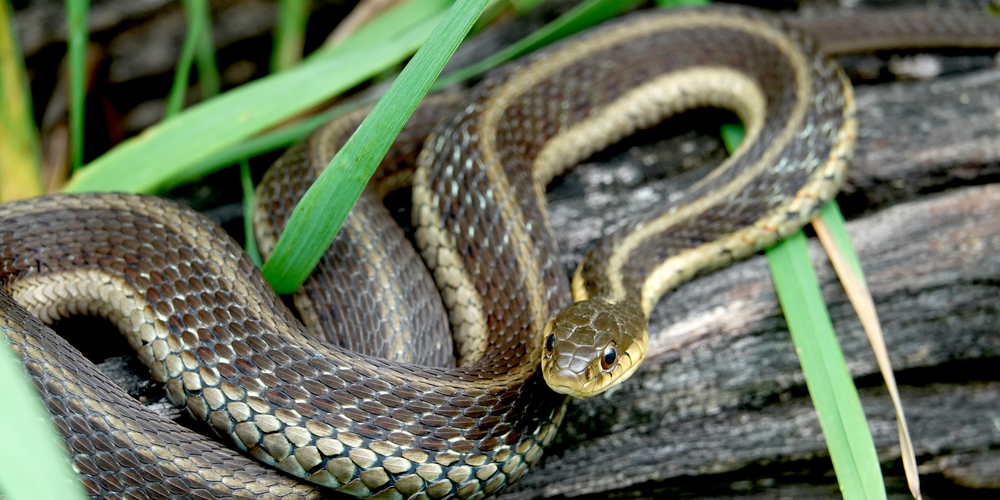| Question | Are There Snakes in Hawaii? |
|---|---|
| Answer | Generally, No |
| More Info | Hawaii does not have any native snake populations, and it is illegal to own or introduce snakes to the islands. The state maintains strict regulations to preserve its unique ecosystem and prevent the introduction of snakes, which could pose significant threats to native wildlife. However, there have been rare incidents of snakes being illegally imported and found in the wild. These are typically dealt with swiftly by wildlife authorities. |
Presence of Snakes in Hawaii
Hawaii’s unique ecosystem includes a limited presence of snakes, due to strict regulations and the state’s isolated geography.
Here’s what you need to know about the types of snakes that can be found in Hawaii and their impacts.
Native Species
- None: It’s essential to note that there are no native snake species in Hawaii.
Invasive Species
- Examples of Introduced Snakes: While there are no native snakes, several invasive species have been found in Hawaii.
- This includes the Corn Snake which, while not harmful to humans, poses a risk to the ecosystem.
- Prevention Efforts: Due to the seriousness of the threat, Hawaii has strict laws against the importation of snakes, with significant penalties for violations, as severe as $200,000 fines or three years in prison.
Environmental Impact
- Threat to Wildlife: Invasive snakes have a significant impact on native bird populations, as they prey on birds and their eggs, contributing to the decline of these species.
- Ecosystem Disruption: The introduction of any non-native snake into Hawaii could lead to substantial ecological damage, similar to the devastating effects seen on other Pacific islands, such as Guam.
Legal Status
In Hawaii, the importation and ownership of snakes are highly regulated due to the potential threat they pose to the island’s ecosystem.
Regulations
- Importation: Bringing snakes into Hawaii is illegal, as the state’s ecosystem is particularly vulnerable to invasive species.
- The law is strict, with significant penalties for violations.
- Penalties: The importation of snakes can lead to severe consequences, including:
- Fines: You may be fined up to $200,000.
- Imprisonment: You could face up to three years in prison.
- Wildlife Protection: These stringent measures protect Hawaii’s native wildlife and help prevent ecological damage similar to that caused by invasive species on other Pacific islands, such as the brown tree snake in Guam.
Snakes as Pets
- Prohibition: Keeping snakes as pets in Hawaii is illegal. This includes all snake species, without exceptions.
- Public Safety and Ecology: The purpose behind this prohibition is to safeguard both public safety and the delicate Hawaiian ecology.
- Reporting: If you encounter a snake, you are encouraged to report it immediately to the local authorities to handle the situation appropriately.
Prevention and Control

In Hawaii, stringent efforts focus on the detection and control of snakes to preserve its unique ecosystem.
Your awareness and cooperation are vital in these prevention strategies.
Detection Methods
- Visual Surveys: Regular checks in cargo and pet trade areas are imperative for spotting any illegal or accidental snake introductions.
- Sniffer Dogs: Trained canines are employed at ports and airports to detect any snakes that may be hidden within incoming shipments.
Control Measures
- Rapid Response Teams: These specialized groups are deployed immediately upon a snake sighting to capture and remove the snake.
- Laws and Regulations: Strict legal penalties, including substantial fines and imprisonment, are enforced for those caught importing or owning snakes in Hawaii. This is intended to serve as a deterrent and to prevent the establishment of a population in Hawaii.
Frequently Asked Questions
In Hawaii, the absence of snakes is notable, and you might wonder about their presence and impact on the island’s ecosystems. Let’s explore some of the most common questions regarding snakes in Hawaii.
Why are there no snakes in Hawaii?
Hawaii’s isolation led to the evolution of a unique ecosystem without snakes.
Its islands were formed volcanically and are situated far from any landmass where snakes could have naturally migrated. The state works diligently to maintain this condition due to the potential threat snakes pose to its native wildlife.
Are venomous snakes present anywhere in Hawaii?
No venomous snakes are established in Hawaii.
While the Yellowbelly sea snake, a marine species, has been occasionally spotted in waters around the islands, they are rare visitors and not considered a part of the local fauna.
How do mongoose populations affect the presence of snakes in Hawaii?
Mongooses were introduced to Hawaii in the 19th century to control rat populations in sugarcane fields; they are diurnal hunters whereas snakes are often nocturnal, which reduces their interactions.
However, mongooses have been ineffective in controlling non-native rats and instead pose a threat to the native birds’ eggs and other wildlife.
Is the island of Oahu home to any snake species?
While there are no native snake populations on Oahu, a few non-native snake species have been introduced.
For example, the small Island Blind Snake has been found on Oahu, but it is not harmful to humans or significantly disruptive to local ecosystems.
What is the likelihood of encountering snakes on the Big Island?
The likelihood of encountering a snake on the Big Island is very slim.
This is because Hawaii has stringent control measures to prevent the establishment of snakes, including heavy fines and strict quarantine processes.
Does the state of Hawaii have an issue with invasive snake species?
Hawaii considers invasive snake species a serious threat due to their potential to disrupt local ecosystems.
Control efforts involve a combination of legal deterrents and active measures like detection and eradication to prevent the establishment of invasive snake populations.
Last update on 2024-05-04 / Affiliate links / Images from Amazon Product Advertising API



